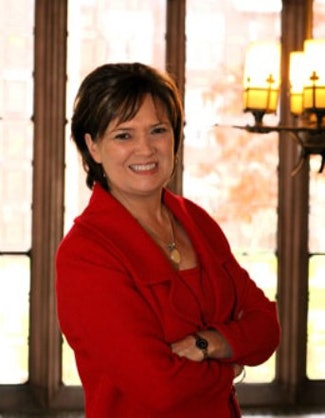SAN FRANCISCO — The liberal arts education should not be reserved for just the elite but should be embraced by all colleges and universities, according to its advocates at this year’s annual meeting of the Association of American Colleges and Universities (AAC&U).
 AAC&U President Dr. Lynn Pasquerella
AAC&U President Dr. Lynn Pasquerella“A liberal arts education is situated as reserved for those within the ivory tower, reflecting a willful disconnect from the practical matters of everyday life,” said Dr. Lynn Pasquerella, president of the AAC&U, during the opening plenary session.
“We need to be vigilant in rebutting accusations of irrelevance and illegitimacy leveled specifically at the liberal arts and sciences and to recognize those charges for what they are: collusion in the growth of an intellectual oligarchy in which only the very richest and most prestigious institutions preserve access to the liberal arts traditions.”
AAC&U is not the only organization to grapple with how best to increase the number of college students who are selecting humanities-based majors. Last month, the outgoing president of the Modern Language Association (MLA) said that its group was redoubling its efforts to help students understand the value of the liberal arts.
“I think we need to do a better job in explaining what we’re doing,” said Dr. Kwame Anthony Appiah, a New York University philosophy professor and one of the nation’s most recognized public intellectuals. “We have the greatest collection of humanists that have been assembled, but the value of that is not being as generously shared, I think, as it could be. Therefore, as long as that goes on, I think that we will be continuing to face downward pressure.
“So, we have to work very hard to make the case that, both for the purposes of life, citizenship and work, a solid education in the humanities is a crucial thing for many, many people.”
During a panel discussion at AAC&U, experts noted a number of reasons why the liberal arts has been in a steady decline. The reasons, they cite, include too narrowly focusing on simply graduating students so that they can get a job and the rising costs of a college education. This is at the same time as when federally funded financial assistance is facing cutbacks.
“We’ve not only shifted sort of our own rhetoric about this, but the major mechanism of financial aid at the federal level has become loans and not grants over time,” said Dr. Sara Goldrick-Rab, a professor of higher education policy and sociology at Temple University in Philadelphia.
“And part of that has been facilitated by the rhetoric that says, ‘We can charge what we want because what we’re providing is a value, and we will discount it for those who have need. And we will do so effectively, what’s called the high-tuition, high-aid model, despite the fact that over 30 to 40 years, we’ve failed to actually implement that model.
“We told ourselves a story over and over where our students are actually all right, or they must be, or we wouldn’t be able to sleep at night, quite frankly.”



















